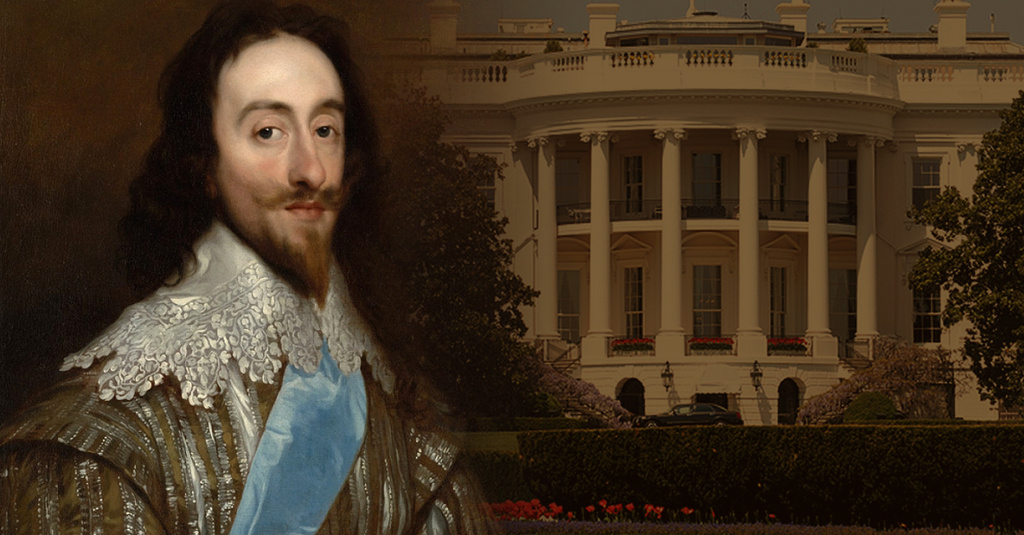Chalcedon Report No. 199, March 1982
One of the acts of the Puritan Commonwealth in England was to try and to behead King Charles I. For this act, many historians to this day seem to bear a grudge against Cromwell and the Puritans. With the Restoration in 1660, and the reign of Charles II, the men associated with Charles I’s trial were themselves tried and executed. The presiding judge at this trial was Sir Orlando Bridgeman, who, in his charge to the jury, declared that kings were subject to none but God, and could do no wrong; even if they could do wrong, they were beyond punishment. This “legal” position made a guilty verdict inescapable. The Church of England added to its liturgy a service for that noble “martyr” of the faith, Charles I, a liturgy used for generations.
The fact is that, apart from being a stupid and very unconstitutional monarch, King Charles I was also a thief. At one point, Charles marched off with 130,000 English pounds of other people’s money, expropriated from London’s goldsmiths, who stored their deposits in the Tower of London. It was a theft that failed, like everything Charles did, but at least he tried! Somehow, historians often gloss over this aspect of Charles’s reign. This is not unusual. When Otto J. Scott, in James I, noted in passing that monarch’s homosexuality, one historical journal disapproved and spoke of that vice as a royal privilege!
Such thinking is all too prevalent. In the 1960s, a prominent pastor, deeply involved in sin, was confronted with the facts thereof by a church officer. The pastor defended himself by holding that, as “the Lord’s anointed,” he was above criticism. More than a few people agreed; all that man’s numerous congregation did. And everywhere people will say that we are only to pray for, never to criticize, those in authority over us. Somehow, the prophets of Scripture missed that doctrine when they listened to God!
We have a modern name for King Charles’s “right to steal.” It is called executive privilege. It means that we can supposedly be legally robbed of money, information, and self-government in the name of executive privilege. Make no mistake about it: theft can be of more than money. The courts have in fact held that possession of certain types of exclusive and “inside” information about a company and its stocks can constitute a form of theft and a means of gaining an unfair advantage in the market. In the Old West, people paid a price for dishonest means of knowing what another man’s poker hand was, such as by means of marked cards. Federal regulations which legislate and limit our freedom outside the elective and representative process are certainly forms of theft. Then, too, inflation is a form of theft, a means of counterfeiting available only to civil government.
Charles I thus should be the patron saint of the modern state, but, of course, he was an amateur, and he paid the price for his bungling. But the modern state, too, will pay the price; God’s day of reckoning awaits all sinners. The “right to steal” becomes the right to perish.

- R. J. Rushdoony
Rev. R.J. Rushdoony (1916–2001), was a leading theologian, church/state expert, and author of numerous works on the application of Biblical law to society. He started the Chalcedon Foundation in 1965. His Institutes of Biblical Law (1973) began the contemporary theonomy movement which posits the validity of Biblical law as God’s standard of obedience for all. He therefore saw God’s law as the basis of the modern Christian response to the cultural decline, one he attributed to the church’s false view of God’s law being opposed to His grace. This broad Christian response he described as “Christian Reconstruction.” He is credited with igniting the modern Christian school and homeschooling movements in the mid to late 20th century. He also traveled extensively lecturing and serving as an expert witness in numerous court cases regarding religious liberty. Many ministry and educational efforts that continue today, took their philosophical and Biblical roots from his lectures and books.
